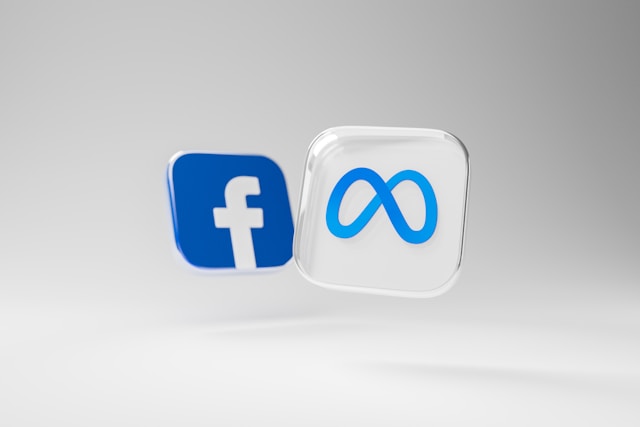
In the fast-paced world of social media, platforms are constantly evolving to enhance user engagement and streamline communication. A trend that has been catching the eye of digital marketers and social media managers alike is the migration of Facebook comments into the Messenger ecosystem. This shift has sparked a conversation among professionals, pondering over the ‘why’ and ‘how’ this change impacts their digital strategies. This blog post aims to dissect this trend, providing clarity and actionable insights for those steering the social media helm.
Understanding the Shift
Facebook’s decision to integrate comments into Messenger isn’t arbitrary. It stems from the platform’s broader strategy to encourage private conversations and make interactions more personal and secure. By bridging the gap between public comments and private messages, Facebook aims to foster a more connected experience, allowing users and brands to engage in deeper, meaningful conversations away from the public eye.
The Impact on Engagement
For digital marketers and social media managers, this shift signifies a pivotal change in how audience engagement is perceived and managed. Initially, public comments served as a visible metric of engagement, demonstrating a brand’s interaction level and community involvement. With conversations moving to Messenger, the visible engagement landscape on brand posts may see a transformation.
Navigating the Change
Understanding how to leverage this transition can set your brand apart, offering personalized engagement opportunities that were previously challenging to achieve on public platforms. Here are strategies to adapt and thrive:
- Enhanced Personalization: Use the move to Messenger as an opportunity to personalize communication. Automated messages can greet users by name, acknowledge their comment, and offer tailored responses, making interactions more intimate.
- Streamlined Customer Service: This integration can serve as a powerful tool for customer service. Directing queries and concerns to Messenger allows for detailed and private conversations, fostering positive customer experiences.
- Data-Driven Insights: Messenger interactions offer a wealth of data. Analyze conversations to understand audience needs, preferences, and feedback, informing your content strategy and improving message targeting.
- Proactive Engagement: Encourage users to initiate conversations on Messenger directly from your Facebook posts. Crafting calls-to-action that prompt users to message for more information or exclusive offers can amplify direct engagement.
The Future of Facebook Engagement
As we wade through these changes, it’s essential to remember the digital landscape is perennially shifting. Platforms like Facebook are invariably looking to improve user experience and engagement, sometimes prompting us to rethink our social media strategies.
Actionable Tips for Digital Marketers
- Stay Informed: Keep abreast of updates from Facebook and Messenger to leverage new features and tools as they become available.
- Educate Your Audience: Inform your followers about this new engagement route, encouraging them to use Messenger for inquiries and interactions.
- Monitor and Adapt: Regularly review your engagement metrics on both Facebook and Messenger. Adapt your strategy based on what’s working and what’s not.
Five Intriguing Insights: The Transition of Facebook Comments to Messenger

- Enhancing User Privacy – One underlying motive for moving comments to Messenger is Facebook’s commitment to user privacy. This shift respects users’ desire for more controlled environments where their interactions are not subject to public scrutiny, aligning with the broader demand for digital privacy.
- Promoting Meaningful Interactions – Facebook’s algorithm prioritizes meaningful social interactions, and by transitioning comments to Messenger, the platform encourages deeper, more personal conversations. This approach mirrors the evolving user preference for genuine connections over superficial engagements.
- Streamlining Communication for Businesses – For brands and businesses, this change simplifies customer service logistics. By having conversations in Messenger, businesses can manage inquiries and feedback in one unified place, enhancing the efficiency of their communication strategies.
- Leveraging Advanced Messenger Features – Moving comments to Messenger opens the door for the utilization of advanced features such as chatbots, automated responses, and personalized messaging capabilities. These tools empower brands to provide a tailored customer experience, driving engagement and loyalty.
- Adapting to the Evolution of Digital Communities – This strategic move by Facebook reflects the broader trend of digital spaces evolving from public squares into more intimate settings. By fostering environments where users feel safe and valued, platforms can nurture stronger, more active communities.
Final Thoughts
The move of Facebook comments going to Messenger is more than a platform update; it’s indicative of the evolving digital communication landscape. For digital marketers and social media managers, adapting to this change offers a unique opportunity to deepen audience relationships and refine their engagement strategies.
Navigating this shift with a forward-thinking approach and adopting techniques for more personalized, direct communication can transform how brands interact with their audience, creating a more engaged and loyal community.
In the realm of social media, change is the only constant. By understanding and leveraging these changes, brands can stay ahead, turning challenges into opportunities for growth and connection.
FAQ
Facebook’s decision to move comments to Messenger is driven by the goal of enhancing user privacy and encouraging more meaningful and personal interactions between users and brands.
Businesses can use this transition to offer streamlined, personalized customer service by utilizing Messenger’s capabilities for direct communication, including automated responses and chatbots for efficiency.
Yes, as conversations move to Messenger, traditional metrics of engagement on Facebook posts might decrease, but brands will gain new insights and data from Messenger interactions that can inform targeted content and engagement strategies.
Brands can still encourage public engagement by crafting posts that invite comments and interaction, but they should also promote the use of Messenger for deeper, more meaningful conversations.
Best practices include staying informed about Facebook and Messenger updates, educating your audience about the benefits of engaging via Messenger, and regularly reviewing engagement metrics to adapt strategies accordingly.
This shift reflects the broader trend towards more private and meaningful interactions in digital spaces, aligning with user preferences for genuine connections and conversations in more controlled, intimate settings.






